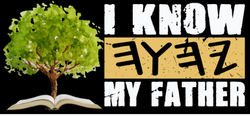Unlocking Healing: 4 Powerful Ways to Overcome Childhood Trauma
Watch the Full Video Lesson Here:
Introduction:
Childhood trauma impacts many of us, often in ways that linger into adulthood, shaping how we view ourselves and the world. It can feel like an invisible weight, yet the journey toward healing is possible and worth every step. Healing from past trauma isn't something anyone should have to face alone; it’s a journey that involves not only personal growth but also connecting with others for support and guidance. Let’s dive into four practical and powerful ways to reclaim your life, letting go of past wounds to move forward with hope and resilience.
Here are our favorite bible study tools. Click the link here.
Understanding the Wounds: The Impact of Childhood Trauma
Childhood trauma can come from many sources: unstable family situations, poverty, or exposure to difficult life events. It doesn’t matter where you come from—trauma affects people from all backgrounds. For some, it may manifest in adulthood as anxiety, depression, or even physical issues like chronic illness. The effects can feel overwhelming, yet acknowledging these wounds is the first and most important step toward healing.
Many people find themselves feeling stuck, unsure why certain fears or negative thoughts hold them back. When you understand that these patterns often stem from early-life experiences, it becomes easier to see them as parts of your story—not the end of it. Recognizing the origin of these feelings empowers you to address them head-on. Acknowledging the pain allows you to start on the path of healing, opening the door to healthier relationships, better mental well-being, and a more fulfilling life.
Embracing Forgiveness: A Path to Emotional Freedom
Forgiveness can be a life-changing part of the healing journey, but it’s often misunderstood. Forgiving someone doesn’t mean excusing or forgetting the harm caused. Instead, it’s about freeing yourself from the emotional burden that holding onto resentment creates. Imagine the release of letting go of anger or resentment that has weighed you down. By forgiving those who may have hurt you, you reclaim your energy and peace.
True forgiveness often begins with empathy. Many parents, caregivers, or others who played roles in our trauma are themselves shaped by their own unresolved pain. By seeing them as humans with flaws and pasts, we can develop compassion that makes forgiveness possible. This doesn’t mean you condone the behavior but that you’re choosing freedom over bitterness. In this process, you’ll find a lightness of spirit and a clearer path toward the person you want to become.
Seeking Support: Building a Healing Community
Healing from childhood trauma isn’t something anyone should try to do alone. Seeking support is a sign of strength, not weakness. Consider building a supportive network through trusted friends, therapists, spiritual advisors, or community groups who can provide encouragement, accountability, and guidance. Finding people who understand what you’re going through or can offer helpful perspectives can bring both comfort and strength during challenging times.
Perhaps you find solace in a group where people share their journeys to recovery, realizing you’re not alone in your experiences. Maybe connecting with a counselor who understands your unique situation brings you the clarity you’ve been seeking. And for many, a personal relationship with Yahuwah can offer profound comfort and assurance. Reaching out isn’t a sign of weakness; rather, it’s a brave step toward resilience and personal growth. True healing thrives in community, where support and understanding help us to see new possibilities.
The Power of Communication: Honoring Our Stories
Open, honest communication is essential in the healing journey. Often, trauma silences us, making it difficult to talk about our experiences. But when we start to share our stories, we break free from that isolation. Speaking openly about our past with trusted people allows us to process the pain and find new meaning in our experiences.
Talking about trauma with family, friends, or mentors can bridge gaps and build stronger connections. Imagine a conversation where you share your struggles, creating a deeper bond with loved ones and helping them understand you better. Even if the conversation is tough, approaching it with honesty can foster empathy and trust. If you’re a parent, having these open dialogues can help break generational cycles, encouraging your children to be open about their feelings as well. Choosing to communicate with openness and respect helps create an environment where healing isn’t just possible—it becomes a reality for everyone involved.
Conclusion:
Healing from childhood trauma is a continuous journey that requires patience, effort, and support. By understanding the roots of our pain, choosing forgiveness, building a supportive community, and embracing open communication, we can start to break free from the past and step into a brighter future. Reclaiming your life from childhood trauma allows you to live with purpose and resilience, cultivating meaningful connections with others and a deeper relationship with yourself. Take the first steps today—embrace healing, honor your journey, and build a life that reflects the wholeness and peace you deserve.

